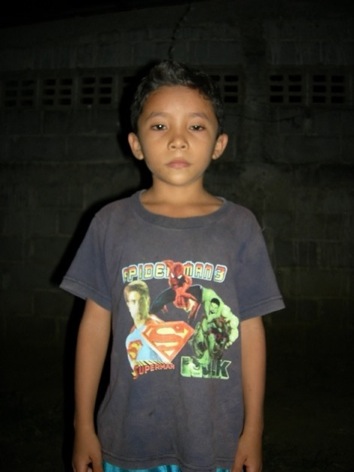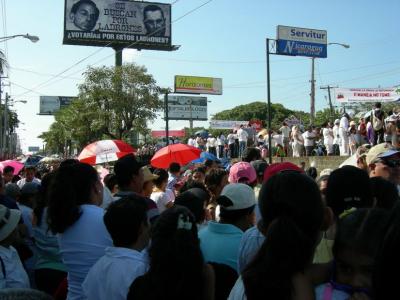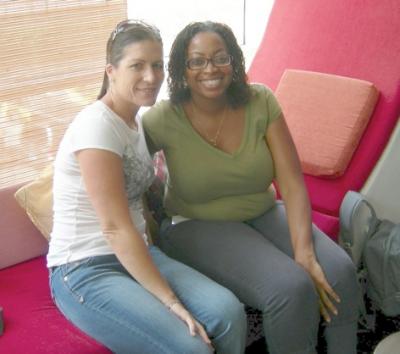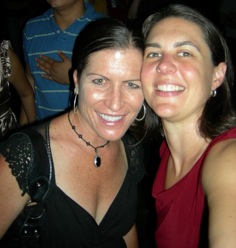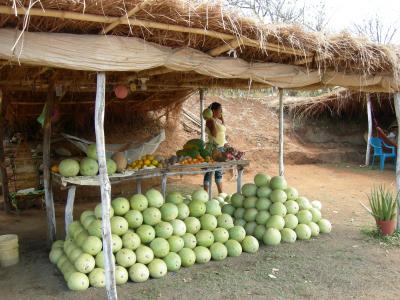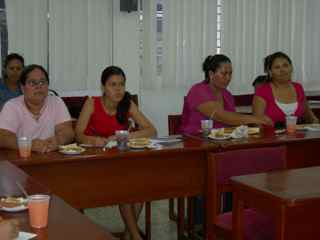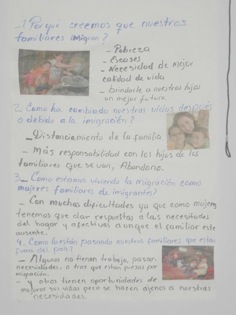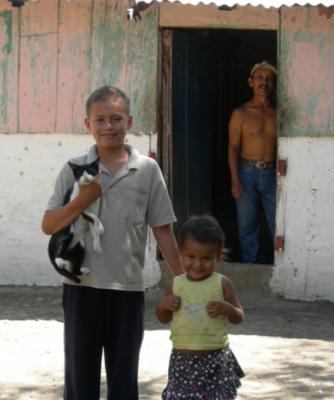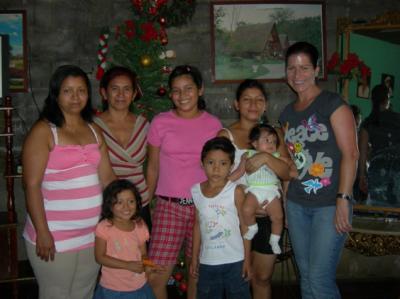field work
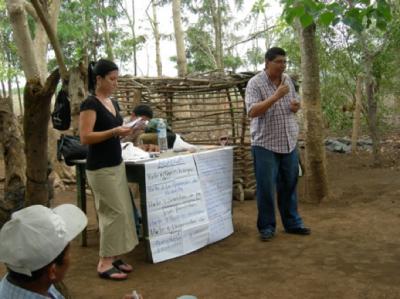
This weekend I travelled to Chinandega - about 2 1/2 hours’ drive northwest from Managua - to conduct "trabajo de campo" with Servicio Jesuita de Migrantes, one of the NGOs I volunteer with here. We conduct talleres (workshops) on the human rights of migrants, using the U.N. "Convención de 1990" as the legal framework. It’s basically popular education with returned migrants and their family members, so they know what their rights are when they migrate to Costa Rica, El Salvador, Panamá, Guatemala, or the U.S., and know how to solicit the needed documents before migrating in order to migrate "documented". Our taller Saturday was held in a community of a sugar plantation called Monte Rosa-- very interesting how these communities have sprouted up to house workers on the plantation over the years. Sunday morning the workshop was held in a rural community called Liborio about 2km down a dusty rocky dirt road from the main highway. Field work like this = heat, sweat, more heat, more sweat, especially in Chinandega, which is probably one of the hottest departamentos in Nicaragua. So you sweat, you support the heat, you feel like you might suffocate because of it, and you continue to teach and conduct your workshop as if you weren’t standing in wet clothes and mopping sweat off your brow and back. Despite the heat and discomfort, I love this work, and feel incredibly blessed to have made contact with SJM and to have (even if temporarily) joined their team. Pictured here are myself and Noel, my colleague from SJM. We make a great team, sharing the responsibility of leading different parts of the workshop and then conducting interviews afterwards, collecting "testimonios" of migration experiences that SJM will use in their annual "Informe" on the status of migration in Nicaragua. Great stuff. paz
